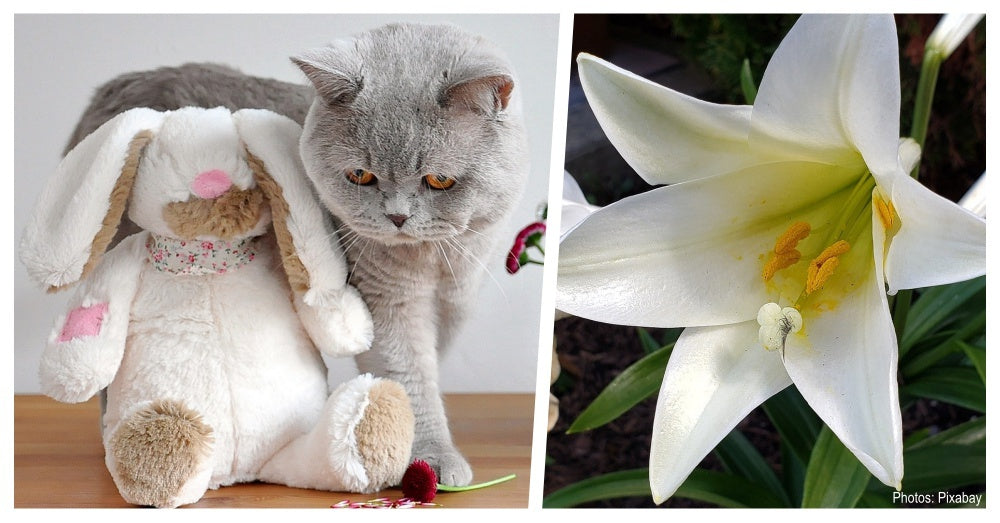Easter Lilies Are Extremely Poisonous To Cats
Andrea Powell
The Easter lily with its large, white, trumpet-shaped flowers and intoxicating fragrance is often brought indoors to celebrate spring and Easter. But just one nibble on the plant or sniff of pollen can be fatal to cats.
Cats are curious by nature and will investigate anything new in the home, especially if the item is breakable or dangerous. Maybe that is why they are said to have nine lives.
 Photo: Pixabay
Photo: PixabayCat parents do their best to keep their beloved felines safe, but it's a full-time job. Cats can jump, climb, and leap onto any surface - so nothing is ever out of reach.
 Photo: Pixabay
Photo: PixabayOne way to ensure Fluffy remains happy and healthy is to avoid Easter lilies.
All parts of the plant - leaf, stem, flower, and pollen- are extremely poisonous to cats. A cat grooming itself after brushing a lily plant can ingest enough of the pollen to go into acute kidney failure. Even drinking the water from the vase can be fatal.
 Photo: Pixabay
Photo: Pixabay"Many plants of the Lilium and Hemerocallis species are very poisoning. Commonly known as the Tiger, Day, Asiatic, Easter, or Japanese Show lily, these plants result in severe acute kidney failure," warns Pet Poison Helpline. "Kidney damage (specifically, renal tubular necrosis) occurs within 24-72 hours of ingestion."
 Photo: Pixabay
Photo: PixabaySigns Of Lily Poisoning
Vomiting
Loss of appetite
Lethargy
Drooling
Dehydration
If your cat has been exposed to a lily and is showing any of the above signs, contact your vet immediately!
The symptoms can start as early as 0 to 12 hours after exposure. If left untreated, acute kidney failure develops and can be fatal.
 Photo: Pixabay
Photo: PixabayWhile there isn't an antidote for lily poisoning, vets will administer IV fluids, induce vomiting, monitor kidney functions, and provide supportive care.
The deadly toxin has not been identified, but only seems to affect cats. Dogs may experience an upset stomach if they consume part of a lily but don't develop kidney failure.
Be sure to double check if a plant is poisonous to pets before bringing it into your home.
To be on the safe side, avoid planting lilies and other poisonous plants in your garden where pets may still come in contact with them.


